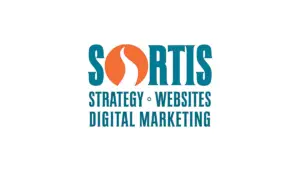DISCOVER THE ESSENTIAL PROGRAMMING ELEMENTS TO CONSIDER FOR YOUR NEXT WEBSITE DEVELOPMENT PROJECT.
By Taryn Grisham, Senior Project Manager
When it’s time to build a new website (or update your existing one), there are several elements to consider when choosing a content management system (CMS). The right decision here will help ensure you can easily access and edit a centralized library of website pages, images, videos, and other content. So, what factors should be on your shortlist? I asked our Senior Programmer, David Francis, for all the details. Read on for his list of seven content management system considerations.
- Popularity
- Enhancements
- Hosting costs
- Usability
- Flexibility
- Mobile performance
- Support options
Find out more about these considerations when choosing a content management system below.
POPULARITY
How popular is the content management system you’re considering? This factor may seem trivial on the surface, but it can make a significant difference in the future. Commonly used content management systems usually have more modules and plugins available to enhance the functionality on your website. Well-known systems also tend to have more support options available in the forms of discussion boards, support chats, or live programmers. Learn more about the importance of support later in the article.
ENHANCEMENTS
To take your website to the next level, consider the enhancements you want to make before choosing a content management system. Check to ensure your desired modules or website plugins are compatible with the CMS you’re thinking of choosing – or have your programmer or digital marketing agency check for you. Even if a web developer can customize your site within your content management system, these programming edits can come with a high price tag. WordPress is one CMS example with a high volume of plugins that can help you add “custom” features at a fraction of the cost.
HOSTING COSTS
Some content management systems may appear to suit your needs – but when you dig deeper, you may discover costly or cumbersome hosting requirements. It’s important to add up all relevant costs to determine your true project investment before diving in. Avoiding these specialty types of systems can help reduce overhead costs and long-term headaches.
USABILITY
Usability is another consideration when choosing a content management system. In addition to having plenty of enhancement options, WordPress is also one of the most user-friendly CMS options out there, as illustrated by its unmatched usage. It has countless plugins available to do just about everything a business would need, including a robust e-commerce solution.
Drupal is another CMS that can be easy to use with some training. But if the website isn’t programmed intuitively, it can quickly become overwhelming and frustrating. If you are the primary website contact at your company, will it be easy to get someone else to make changes to the website when you’re out of the office? If the answer isn’t favorable, it might point you toward a different content management system for your website redesign.
There are many other user-friendly content management systems to choose from. To help find the best solution for you, contact our Madison-area website development experts today.
FLEXIBILITY
One of our philosophies of a well-performing website is that you must continually work on them to get the most out of your investment. This strategy is called website improvement. When you’re choosing a content management system, consider how easy it will be to make continual changes to enhance your website’s performance over time. A CMS might make launching the website easy (especially when using a template-driven option like Squarespace or Wix), but also make sure that future changes aren’t complicated or cost-prohibitive. Having the flexibility to change your website over time is key to getting the most from your investment.
Discover 5 reasons website improvement is better than website redesign here.
MOBILE PERFORMANCE
As mobile use becomes increasingly popular, thanks to tablets and smartphones, it’s no coincidence that most content management systems have adopted a mobile-first mentality. While many are mobile compatible, some aren’t quite there yet. For example, Drupal and WordPress are both capable options, while .NET based systems like DotNetNuke and Sitefinity are not up to par. If a significant portion of your audience visits your website from a mobile device, be sure to consider the mobile offerings of your CMS.
Learn more about the importance of mobile-friendly designs here.
SUPPORT OPTIONS
When embarking on a website development project, choose an established content management system with a broad support base. Access to CMS developers will ensure you have people who can assist with any glitches, security breaches, and software updates. If you encounter a CMS with a large, experienced support team, it can also signal their commitment to upgrading functionality and security over time.
With guidance and research, choosing a content management system for your next website build can end up saving you time and money. Are you ready to turn your wireframes and ideas into reality?
Contact our Madison-area website development team to get started today.




